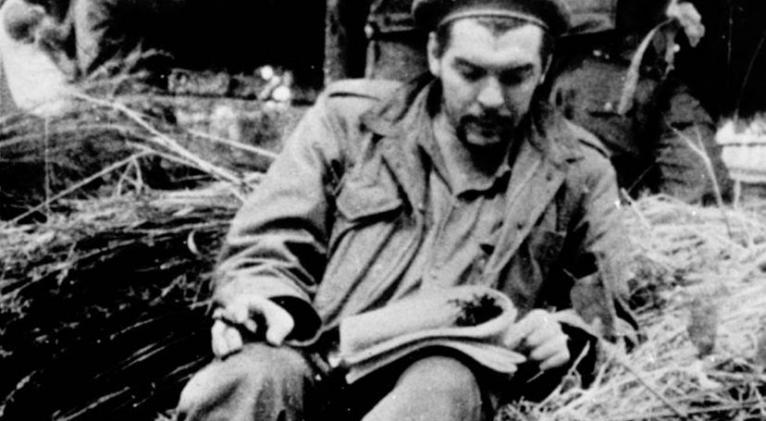“He was a man who read poems”
especiales

Ernesto Guevara would have turned 94 years old on Tuesday. Much has been written about his extraordinary projection: he is one of the global icons of virtuous rebelliousness. A man of action, organizer, political thinker…he was also a humanist, a well-versed and sensitive man. On this subject, equally important in his life journey, we talked to his daughter, Aleida Guevara.
—When people get to know Che, they usually see his heroic dimension. But his vast culture and sensitivity is somewhat relegated…How did Che embrace culture?
—He suffered from asthma since he was a child. He suffered from serious asthma crises when he was a child. If we take into consideration that it occurred in the early years of last century, we should understand that treatments to heal were really tough. Therefore, his dad sometimes kept him at home and he did not go to school. And that is how my father found in reading a habit.
My grandpa used to say —and you know that grandparents often exaggerated when they talk to their grandchildren— that my father had read a thousand books when he was 11. I am not quite sure about that. But it is true that he was 17 when he begins to write a philosophical dictionary. It proves he treasured an extraordinary cultural background.
His favorite book was The Little Prince. Or Don Quixote de La Mancha. And did you know he read Das Kapital at a very young age? He said he did not understand a word at first. But later, he had copies of that book with some written side notes, asking himself: How can I do this in Cuba? In short, he did not only succeed in understanding the book, but he also aimed at implementing the learnings in a different reality.
This is very important: to my father, culture was to be implemented, not only to be treasured.
—How did that vocation materialize?
—He always said that true revolution men must know the feeling of love. The true men of fights, struggles, need to have a tender, kind dimension…something that drives them to feel the necessary love to embrace life and risk their own.
My father read poems, since…forever. What’s more, he read them aloud to my mom. At night, when he came back home from work, he recited poems to my mother. When he went to Congo, he left my mom those poems recorded with his voice. What a beautiful thing! What a great action! There are a lot of poems with his voice. But of course, they belong to my mom. They only belong to her.
—He was found time to share with writers and artists despite his busy agenda…
—The thing is that it helped him grow as a human being. He always knew that culture was one of the most important things for human beings. Without culture, you are not able to enjoy the beauty of life. Perhaps you may be affected by things you have the ability to assess. He understood it. Learning was essential to him. My father was eager to learn every single day and therefore, he grew as a human being.
He paid close attention to writers and artists. And he paid close attention to what the people said, the humble people. He said they had a treasured culture, which was unlikely to find on books, but priceless nonetheless. He made no distinctions regarding culture.
—Would he imagine he would become a referent for so many artists?
—I do believe that people like Che do not think about it. He loved taking pictures and he was actually a pretty good photographer. I think he looked himself in the mirror every day. He was handsome. But he did not care. I think he did not spend much time thinking about transcending in the world of art.
He was not a vain man. If you look at his pictures, he was always dressed properly. But that was my mother’s care. She liked his uniform to be always clean, pressed. But he did not care much.
I guess he never thought that his picture (Korda’s), could become a universal symbol. But I insist: he did not care much.
I know it is very hard to take such a personality into the world of arts, plastic arts. Very few artists succeed in depicting such a clean, profound look. Nicolás Guillén stated in a poem: he was an honest man, an extremely clean man. He always tried to respect human beings by all means. And make their lives better each day. That was Che’s life purpose.
Translated by Sergio A. Paneque Díaz / CubaSí Translation Staff














Add new comment